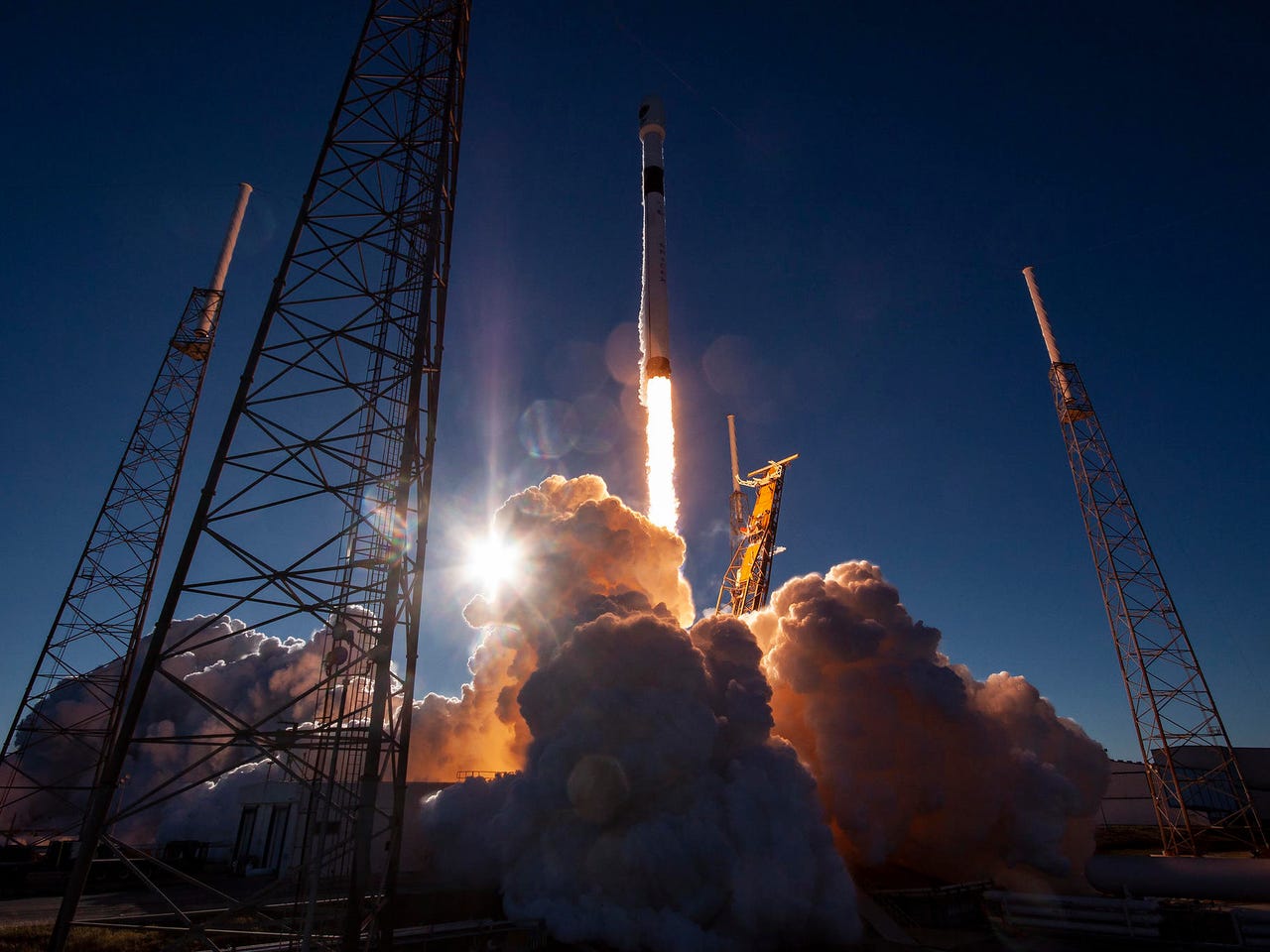































 Image: SpaceX
Image: SpaceX SpaceX has agreed to mitigate the impact of its Starlink broadband satellites on ground-based astronomy facilities.
NSF has outlined a new agreement it signed with SpaceX to protect ground-based astronomy covering the brightness of Starlink satellites, competing usage of radio bands, and finding ways to ensure Starlink's orbital information is publicly available so astronomers can schedule observations around satellite locations.
Even since Elon Musk's space company began sending Starlink satellites into low-Earth orbit (LEO), astronomers have been worried about how the growing number of devices will interfere with their ground-based telescopes' view of the galaxy.
Astronomers are also projecting they'll need to contend with commercial constellations collectively numbering 400,000 LEO satellites by 2030, rather than SpaceX's current 3,500 Gen1 Starlink constellation. The FCC in December authorized SpaceX to launch 7,500 Gen2 Starlink satellites, far fewer than the 29,000 Gen2 Starlink constellation SpaceX is aiming for.
Also: SpaceX unveils 'Starshield' Starlink service for national security usage
SpaceX's second-generation satellites include mitigations, such as dielectric mirror film, solar array mitigations, black paint to minimize brightness and glints, and best practices for flight operations, NSF notes.
Astronomers should also no longer be disrupted by Starlink satellites passing though an area being observed with astronomy lasers. The US Space Command's Laser Clearinghouse is responsible for ensuring orbital assets are't damaged by lasers. Previously, astronomers using lasers would need to coordinate with the Laser Cleaning house, but they will no longer need to after SpaceX studied the impact of astronomy lasers on Starlink.
"The change means that adaptive optics lasers at ground-based facilities will no longer suffer closures every time the SpaceX satellites pass near an observed region of sky," NSF's NOIRLab said in a statement. SpaceX is working with NOIRLab to develop best practices.
To assist radio astronomy, SpaceX has agreed to coordinate with impacted US radio astronomy facilities. Under a 2019 agreement, SpaceX already works to mitigate potential interference from Starlink transmissions to the radio astronomy band 10.6 GHz to 10.7 GHz. The new coordination includes avoiding main beam illumination during observations at radio astronomy facilities, including the the Very Large Array (VLA), Very Long Baseline Array (VLBA), Green Bank Observatory (GBO), Arecibo Observatory (AO), and geodetic Very Long Baseline Interferometric (VLBI) stations.
Also: Cybersecurity in space: The out of-this-world challenges ahead
NSF's National Radio Astronomy Observatory (NRAO) has started a pilot program to test the impact of SpaceX user terminals located close to the VLA.
SpaceX has pledged to minimize the impact of Starlink on remote radio astronomy in polar regions when it provides connectivity in those regions.
"We are setting the stage for a successful partnership between commercial and public endeavors that allows important science research to flourish alongside satellite communication," said NSF director Sethuraman Panchanathan.
 Tags quentes :
Inovação
Espaço
Tags quentes :
Inovação
Espaço